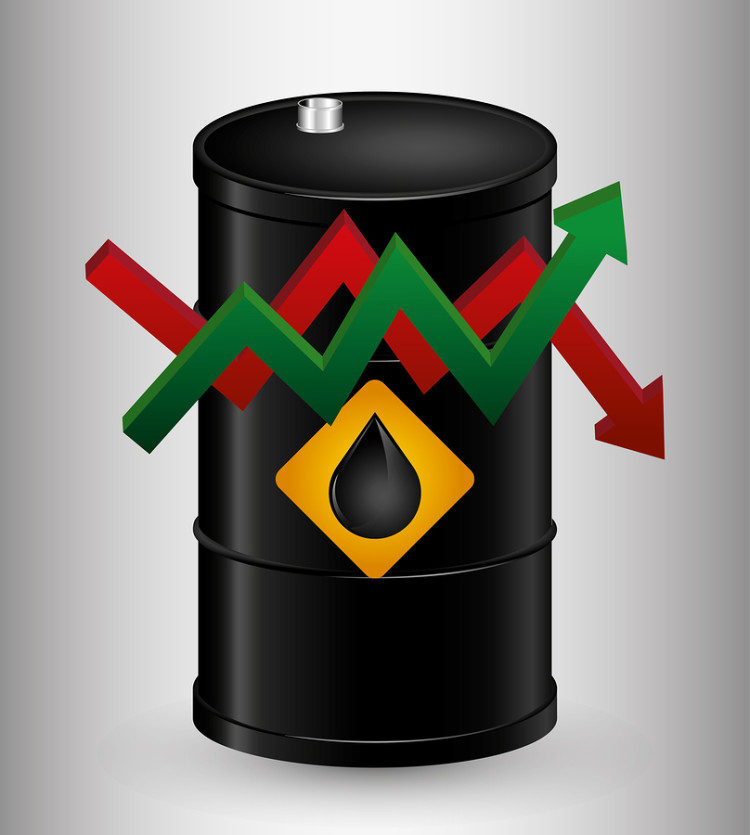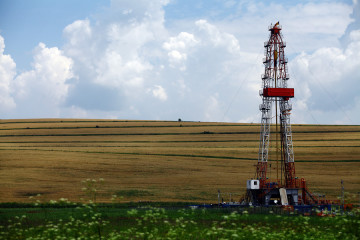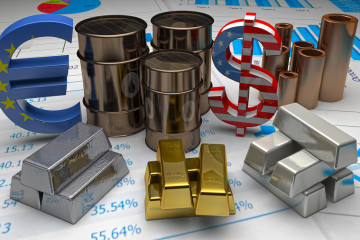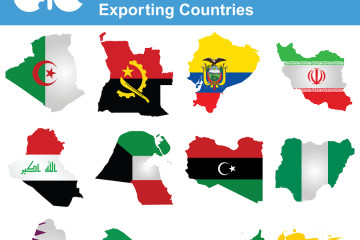Oil Closes Near $51 as Kuwait Said to Cut Sales to U.S., Europe

(Bloomberg) —Oil settled near $51 a barrel in New York as Kuwait was said to make bigger supply cuts to U.S. and European customers.
Crude pared losses after earlier falling 2.1 percent as the dollar advanced after the Federal Reserve raised U.S. interest rates for the first time in 2016. A stronger dollar makes commodities priced in the currency less attractive to investors. Futures rose after state-run Kuwait Petroleum Corp. was said to make bigger cuts to U.S. and European customers than Asian buyers, according to a KPC official, who asked not to be identified because communications with customers is private.
“It’s Kuwait,” said John Kilduff, a partner at Again Capital LLC, a New York-based hedge fund that focuses on energy. “There’s been a lot of back and fourth about the prospects for the deal. The Kuwait allocations are a reminder of their earnestness in making the deal work. It looks like the Saudis and other Gulf countries are going to do their part.”
Oil has traded near $50 a barrel since the Organization of Petroleum Exporting Countries agreed Nov. 30 to reduce output for the first time in eight years. Oil rose to a 17-month high on Tuesday following a broader deal reached over the weekend in Vienna with 11 non-OPEC producers including Russia encompasses countries that produce about 60 percent of the world’s crude. Libya reopened one of its biggest oil fields and is preparing for the first time in two years to ship crude from its largest export terminal.
West Texas Intermediate for January delivery fell 14 cents to settle at $50.90 a barrel on the New York Mercantile Exchange. Prices closed at $52.98 on Tuesday, the highest since July 2015. Total volume traded was about 23 percent above the 100-day average at 4:14 p.m.
Covering Shorts
Brent for February settlement climbed 12 cents to $54.02 a barrel on the London-based ICE Futures Europe exchange. The global benchmark closed at a $2.05 premium to February WTI.
“We got short covering after we dipped below $50,” Gene McGillian, manager of market research for Tradition Energy in Stamford, Connecticut, said by telephone. “I expect we’re going to see a lot of price volatility through the end of the year. Things are going to be choppy like this.”
The greenback extended its advance against major and emerging-market peers, approaching parity with the euro for the first time since September 2003. The Bloomberg Dollar Spot Index, a gauge of the currency against 10 major peers, rose 0.7 percent after advancing 1.1 percent on Wednesday, the most since Nov. 9.
“The dollar’s gain is taking a little of the starch out of this rally,” Rob Haworth, a senior investment strategist in Seattle at U.S. Bank Wealth Management, which oversees $133 billion of assets, said by telephone. “The hawkish tone of the Fed is making investors pay attention to the dollar.”
Kuwaiti Allocations
The Kuwaiti state oil company has informed customers it will implement cuts on crude lifting starting Jan. 1, as it carries out crude-output reductions agreed by global producers
“Oil is holding up better than other commodities because of the OPEC and non-OPEC cuts,” Jason Schenker, president of Prestige Economics LLC in Austin, Texas, said by telephone.
Libya reopened one of its biggest oil fields and is preparing for the first time in two years to ship crude from its largest export terminal, as the war-torn OPEC state increases output. The El Feel, or Elephant field, in which Eni SpA has a stake, started pumping oil to the Mellitah energy complex on Thursday and is expected to reach output of 75,000 barrels a day within a week, Khaled Hadloul, an engineer at operator Mellitah Oil & Gas, said by telephone.
The tanker Seamusic is scheduled to arrive at the port of Es Sider on Friday to take on the first crude for overseas shipment from the terminal since 2014, Adnan Omran, general manager of Al Omran International Maritime Agencies, said by phone.







No Comment